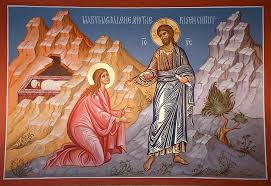In today’s Gospel reading, we read about Jesus’ interaction with Nicodemus. Earlier in Jesus’ ministry, the Pharisees were likely more curious about Jesus than antagonistic to Him, as would be the case later. Yet, Nicodemus bucks the trend in several ways that are instructive. One is that Sacred Scripture strongly suggests he was a faithful follower of the Lord. Nicodemus provided a counterweight to the raucous group in John 7:50, and he comes to bury the Lord in John 19:30.
What is equally compelling about Nicodemus is that he sought answers directly from the source. He was not content with hearsay or groupthink. It seems as though he wanted a private audience with Jesus, to “get down to brass tacks”, as it were. Nicodemus was interested in the truth. He comes with an open mind. He is not afraid to dig in, even though some of his most cherished assumptions were a bit off-base. He wants to sit at the feet of the Master and learn.
The fruit of this exchange between Jesus and Nicodemus yields to us the proclamation of God’s love for the world in John 3:16. We also learn about the work of God the Holy Spirit in our salvation. Thus, the beauty of the Holy Trinity is disclosed to us. We see the Father sending the Son, in the love, power, and unity of the Holy Spirit.
The mysterious and wonderful harmony of Persons acts in human history to redeem the world from brokenness. The new creation that results from our redemption can only be of divine origin because only God can create. We must be new creations to participate in the re-created cosmos; the world God is drawing to Himself will be of such an order that one must be born for it - and this is the work of the Spirit, made possible by the finished work of the Son, sent forth by the Father. All out of love. God’s willing the ultimate and highest good possible for us.



